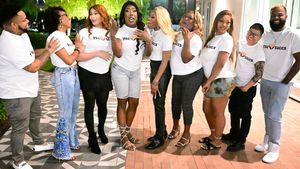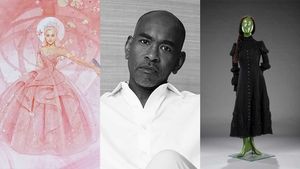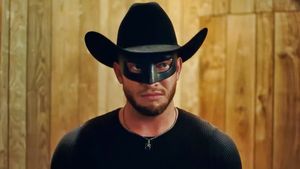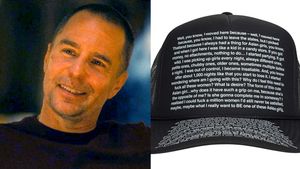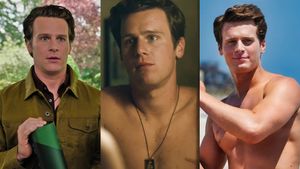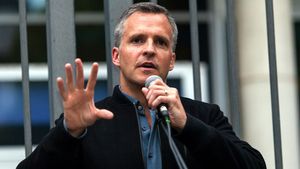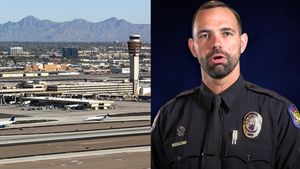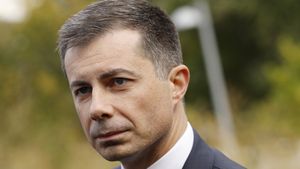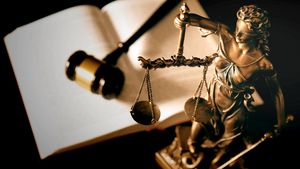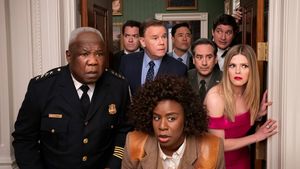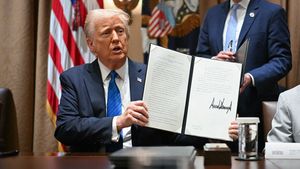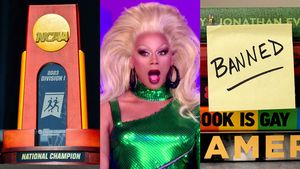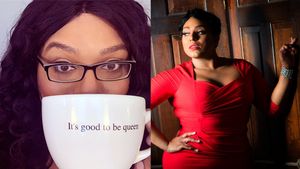I went into episode one of Netflix's docu-series Coming Out Colton fully expecting to hate it.
Colton Underwood, the ex-NFL player and reality show star, was barely a blip on my radar. I do not watch football. I loathe the heterosexual spectacle that is The Bachelor, the show where Underwood dated 30 women at once in a failed attempt to find a wife. When he came out as gay on Good Morning Amerca, I simply did not care. And like many members of the LGBTQ+ community, I rolled my eyes when it was announced that he already a Netflix series chronicling the series of events lined up, where out Olympian Gus Kenworthy acts as his gay guide as he navigates coming out for the first time.
A stereotypically attractive, cisgender, white man lands a reality show minutes after coming out for doing nothing but come out? It all reeks of privilege. There's even a petition to cancel the series currently sitting at 35,000 signatures, citing Underwood's Bachelor co-star and ex-girlfriend Cassie Randolph who filed a restraining order against him, alleging that Underwood stalked her, put a tracking device on her car, and sent her frightening text messages. The restraining order was dropped in November of 2020.
All that hovered in my mind when I pressed play.
Discerningly, the series opens with Underwood coming out to his mom. The two sip margaritas and pick at chips and guacamole while he struggles to piece together the words. "I think I've been struggling with my sexuality," he says, voice shaking. "I guess this is me coming out to you..."
He's known since he was 6, he says. He never felt safe. He's suppressed it for all these years, desperately fighting his own desires to convince himself and the world that he was straight. Many of us that have had this conversation with our parents and can relate to the fear and anxiety etched all over Underwood's face.
His mom has no idea how to react. "I feel guilt for not have seen... not have been able to..." The scene is immediately disarming, and you can't help but feel for them both.
Raw moments like this one deflate much of the preconceived disdain I had for the series. When Underwood is coming out to his friends and family, he never actually says the word "gay", clearly still uncomfortable with the label, until he talks to his father. In one scene, Underwood tearily walks us through his suicide attempt, where he felt so low after the restraining order was filed that he swallowed "a lot of Xanax," fully believing that he would not wake up. When he did, that was the moment he knew something had to change.
While the show is largely interested in sharing Underwood's controversial story, following his journey toward living freely in his truth, and taking accountability for his more unsavory actions, the people surrounding him are actually much more interesting.
In episode two, Underwood explores his relationship with football. He was in the same draft class as Michael Sam, who came out in 2014 with a celebratory kiss with his boyfriend. While his team at the time attempted to embrace him, he endured public disapproval and disdain. Underwood says the locker rooms were anything but supportive. He quietly listened to the ridicule Sam received for weeks, stuffing his own sexuality even deeper. Sam later said that coming out contributed to his exit from the NFL.
That moment comes full circle when he chats with gay ex-footballers, including Sam, David Kopay, and Esera Tuaolo who all share their own heartbreaking stories of suppression. Kopay had to choose between a football game and attending the funeral of the man he loved who died in the Vietnam war. One of the biggest moments of Tuaolo's life was making it to the Superbowl in 1998 with the Atlanta Falcons but that was soured by a moment when his teammates kissed their wives and girlfriends before the game. He was so scared to embrace his partner in the crowd that when he met up with him privately later, he broke down in tears of shame.
These are the moments that shine, especially juxtaposed to the following scene where Underwood returns to his hometown to confront his high school coach about casual homophobia in the locker room, a bit that feels both dull and cringe at once.
There's nothing quite special or groundbreaking about Underwood's story, who is so aggressively generic that I sometimes forget he's there, instead captivated by the cast of supporting characters. Kenworthy, his gay guide, is more interesting and endearing, inciting Underwood to reckon with his privilege between jokes and subtle digs.
But perhaps that's the point. Whether you're a gay man who went through the exact same thing or a Bible Belt mom who's never met a queer person in her life, you can place yourself in Underwood's cleats and empathize. His story, which all-in-all isn't that rough, is similar to millions of others. His privilege as an athletic, stereotypically attractive, cisgender white man in the public eye from a family with means elicits a viewing experience akin to 2018's rom-com Love, Simon, where the gay lead is just digestible enough to the masses that the story can breach the hearts of those who might need to hear it the most.
Perhaps that mediocrity will allow viewers who might not have taken an interest in a gay man's coming out to actually watch the show. Perhaps something in their minds will click. Perhaps the sports world can change to be more accepting of LGBTQ+ folks. Perhaps gay kids growing up will hate themselves a little bit less. Perhaps.









































































